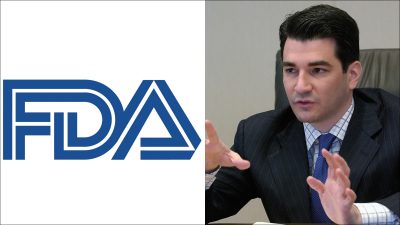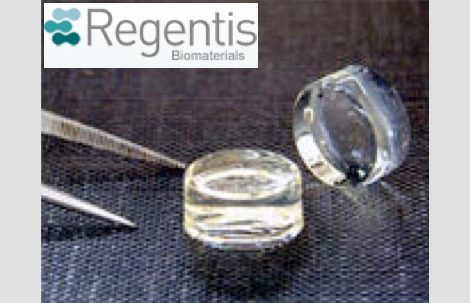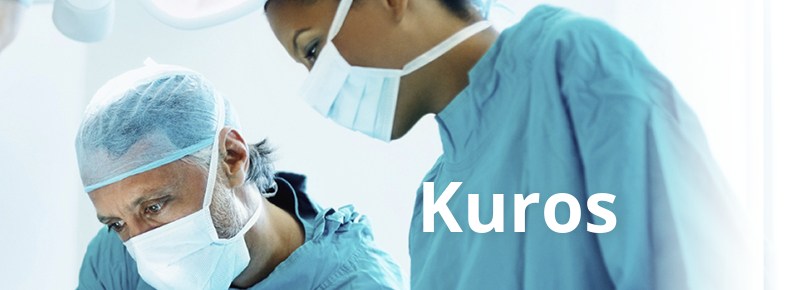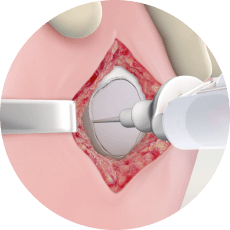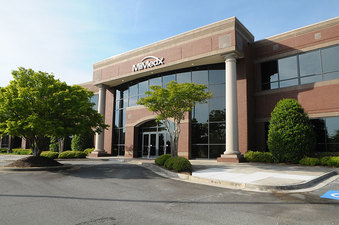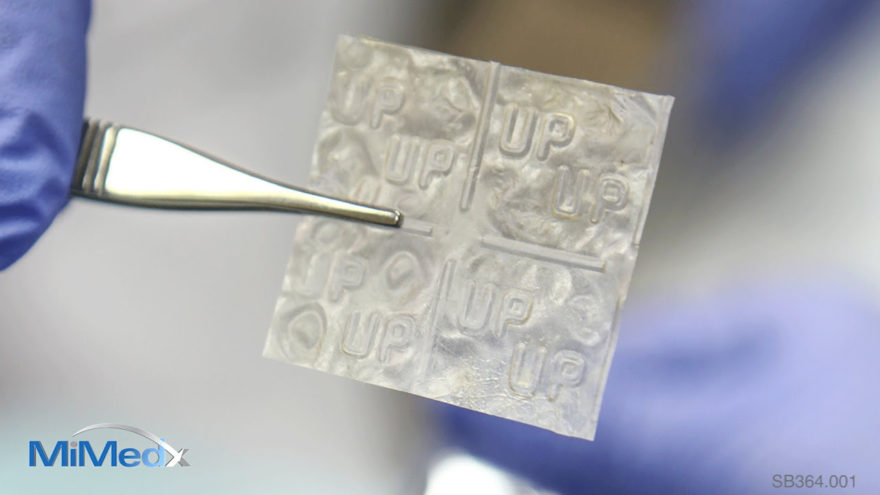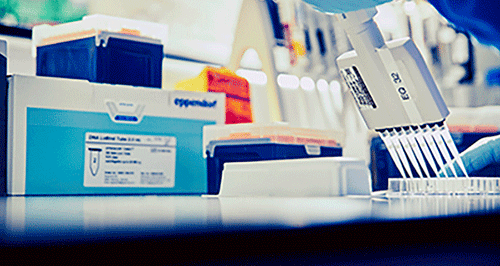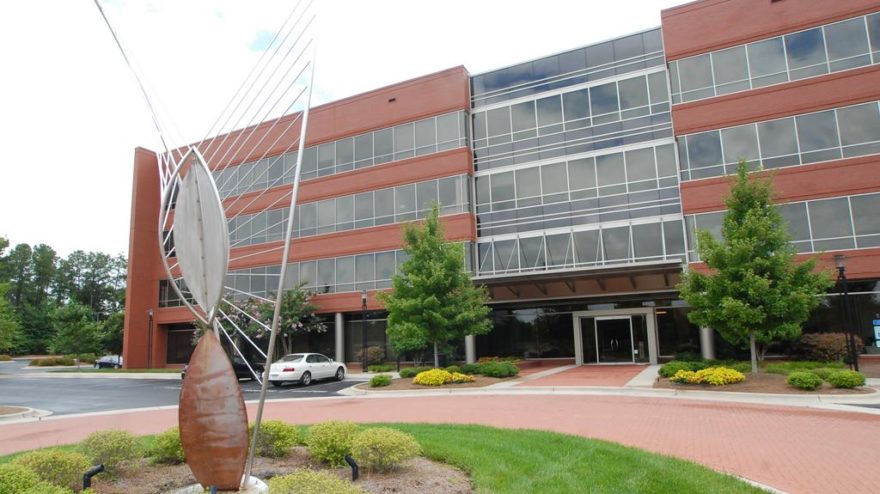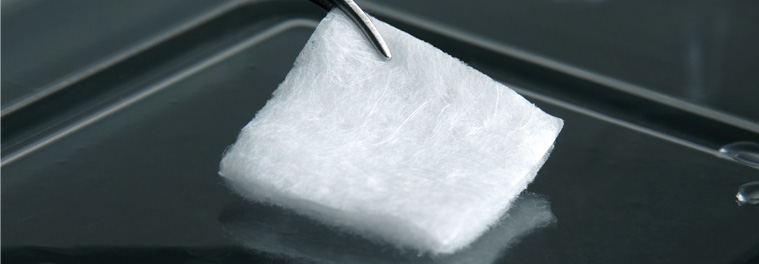SILVER SPRING, Md., Aug. 28, 2017 /PRNewswire-USNewswire/ — One of the most promising new fields of science and medicine is the area of cell therapies and their use in regenerative medicine. These new technologies, most of which are in early stages of development, hold significant promise for transformative and potentially curative treatments for some of humanity’s most troubling and intractable maladies. Recent advances in our basic knowledge of the pathways involved in tissue damage and regeneration have combined with remarkable progress in adult stem cell biology to put us at a genuine inflection point in the history of medicine. The prospect of clinical tissue repair strategies is a tangible reality. This promise is reinforced by the strong commitment of the investment and scientific communities in exploring the potential applications across a wide range of vexing diseases and conditions, such as cancer, Parkinson’s disease, and diabetes, among many others.
However, with all of the medical potential, also comes novelty and uncertainty as this field matures. There are a small number of unscrupulous actors who have seized on the clinical promise of regenerative medicine, while exploiting the uncertainty, in order to make deceptive, and sometimes corrupt, assurances to patients based on unproven and, in some cases, dangerously dubious products. These dishonest actors exploit the sincere reports of the significant clinical potential of properly developed products as a way of deceiving patients and preying on the optimism of patients facing bad illnesses. This puts the entire field at risk. Products that are reliably and carefully developed will be harder to advance if bad actors are able to make hollow claims and market unsafe science. In such an environment a select few, often motivated by greed without regard to responsible patient care, are able to promote unproven, clearly illegal, and often expensive treatments that offer little hope, and, even worse, may pose significant risks to the health and safety of vulnerable patients. These so-called treatments run afoul of the FDA’s legal and regulatory framework governing this new field.
At the same time, it’s incumbent upon the FDA to make sure that this existing framework is properly defined, with bright lines separating new treatments that are medical products subject to the FDA’s regulation from those therapies that are individualized by surgeons in such a way that they are not subject to FDA regulation. The field of regenerative medicine, because of the very nature of the science and the rapidly evolving clinical developments, not infrequently lends itself to often close calls between what constitutes an individualized treatment being performed by a doctor within the scope of his medical practice on the one hand, and what constitutes a medical product that is currently subject to the authorities Congress has already charged the FDA with exercising.
For example, sometimes when cells or tissues are taken from and given back to the same individual or when the cells or tissues do not undergo significant manufacturing, are intended to perform the same basic functions, and are not combined with another drug or device, among other factors; their benefits and risks are well understood. In these circumstances, the products may not require premarket review under current law. However, when significant manufacturing is performed on the cells or tissues, or when the cells or tissues are not intended to perform the same basic functions, far greater uncertainty exists as to the benefits and risks involved. In these cases, it’s necessary to understand the benefits and risks in clinical trials prior to widespread use of the products. Therefore, premarket review is required.
At the same time that we take steps to prevent unscrupulous actors from being able to deceive patients and potentially harm their health, we also need to make sure that the vast majority of responsible product developers know where the regulatory lines governing this new field are drawn. The FDA must advance an efficient and least burdensome framework as a way to help new products remain compliant with the law through a regulatory structure that does not become a barrier to beneficial new innovation.
To make sure the agency is separating the promise from the unscrupulous hype, we are stepping up our enforcement activity in this area. At the same time, this fall the FDA will advance a comprehensive policy framework that will more clearly describe the rules of the road for this new field. This comprehensive policy is based on our existing authority. It will offer responsible product developers – including individual providers working in clinics and academic hospitals and advancing their own products as part of regenerative medicine procedures – a way to more efficiently gain FDA approval for their products through a process that is minimally burdensome and less costly. Many of the individualized treatments fall clearly outside the FDA’s pre-market requirements. For those that currently fall across the line and are subject to the FDA’s existing pre-market review, we want to make sure the process for gaining FDA approval is efficient. We want to facilitate innovation. We seek a regulatory process that accommodates the complexity of developing these therapies, and takes measure of their tremendous and near-term potential.
Stepped Up Enforcement
In terms of compliance, and with regard to our increased oversight and enforcement: In the last few days alone, the FDA has taken steps in Florida and California to address a number of especially troubling products being marketed. But unfortunately, these are examples of a larger pool of actors who claim that their unproven and unsafe products will address a serious disease, but instead put patients at significant risk. We will seek to take additional actions in the coming months as we address this field, and target those who are clearly stepping over the line, at the same time that they create a potential danger to patients. We have examples where some of these unproven treatments have clearly harmed patients.
As the agency responsible for ensuring these therapies are safe and effective, I will not allow these activities to go unchecked. I’ve directed the FDA to launch a new working group to pursue unscrupulous clinics through whatever legally enforceable means are necessary to protect the public health. Late last week, FDA worked with the United StatesAttorney to ask a court to seize the components of a product that involved the use of vaccinia virus vaccine as part of a purported treatment for cancer that FDA believes created the potential for substantial risks to patients. The product posed significant public health concerns for the agency.
Efficient Regulation
With regard to our regulation of these products, I want to expand on the need for bright lines and appropriate oversight to accommodate the good actors working on genuine science.
As we work to protect Americans from the bad actors, I’m equally committed to doing all we can to help bring to patients more quickly innovative, scientifically proven regenerative cell therapies. For this reason, we’re developing a comprehensive and efficient, science-based policy with the aim of accelerating the proper development of these products.
The FDA will advance the new framework this fall. This comprehensive policy will establish clearer lines around when these regenerative medicine products have sufficient complexity to fall under the agency’s current authority, and then define an efficient process for how these products should be evaluated for safety and effectiveness. The policies will be set forth in a series of guidance documents that are the result of a public process we have held in recent years. The new policy will build upon the agency’s current risk-based, flexible regulatory framework. It will also serve to implement provisions of the 21st Century Cures Act related to regenerative medicine. The FDA has already held public meetings to inform its thinking in these areas, so much of the agency’s approach is already part of the public record. We’ll continue to work with industry and the scientific community to perfect the process for bringing safe and effective treatments to patients.
At the same time, we will also issue a compliance policy that, with the exception of outliers potentially harming public health in a significant way right now, will give current product developers a very reasonable period of time to interact with the FDA in order to determine if they need to submit an application for marketing authorization and to come into the agency and work on a path toward approval. And we will also be developing a novel approach to FDA approval that we believe will allow very small product developers to gain all the benefits of FDA approval through a process that is minimally burdensome and less costly. We’re mindful of the significant promise offered by regenerative medicine, the cost of innovation in this industry, the small companies engaging in these enterprises, and the difficulty of doing FDA registration trials in this field. Our framework will take measure of all of these challenges.
In addition, the FDA will continue to work closely with industry to find other ways to aid in the effort to bring novel therapies to patients as quickly, and as safely, as possible. One of these will include our continued commitment to fully implement the Regenerative Medicine Advanced Therapy (RMAT) designation. This pathway enables regenerative cell therapies to access the FDA’s existing expedited programs to help foster the development and approval of these novel products. Among other things, we plan to include certain gene therapy products that permanently alter tissue and produce a sustained therapeutic benefit as part of the products that will meet the definition of being eligible to come under the pathway enabled by RMAT. This is part of our broader commitment to pursue efforts that will advance innovation in this space. We encourage sponsors who are seeking FDA approval of their product to consider this pathway.
Ultimately, the agency’s goal is to make sure that the potential of regenerative medicine can continue to advance to benefit the patients who need new and innovative options for their medical problems. These technologies hold out the potential to significantly alter the course of a broad range of diseases. We are committed to taking steps to make sure these opportunities advance as quickly as possible. To do so, we must put in place the framework to separate the promising treatments from those products that pose significant risks or offer patients little to no chance of benefit. We will also continue to take steps to keep those who would exploit this promising area from harming patients and abusing the public’s trust. We can’t let a small number of unscrupulous actors poison the well for the good science that holds the promise of changing the contours of human illness and altering the trajectory of medicine and science.
For more information:
FDA warns US Stem Cell Clinic of significant deviations
The FDA, an agency within the U.S. Department of Health and Human Services, protects the public health by assuring the safety, effectiveness, and security of human and veterinary drugs, vaccines and other biological products for human use, and medical devices. The agency also is responsible for the safety and security of our nation’s food supply, cosmetics, dietary supplements, products that give off electronic radiation, and for regulating tobacco products.
Media Inquiries: Lyndsay Meyer, 240-402-5345, lyndsay.meyer@fda.hhs.gov
Consumer Inquiries: 888-INFO-FDA
SOURCE U.S. Food and Drug Administration

